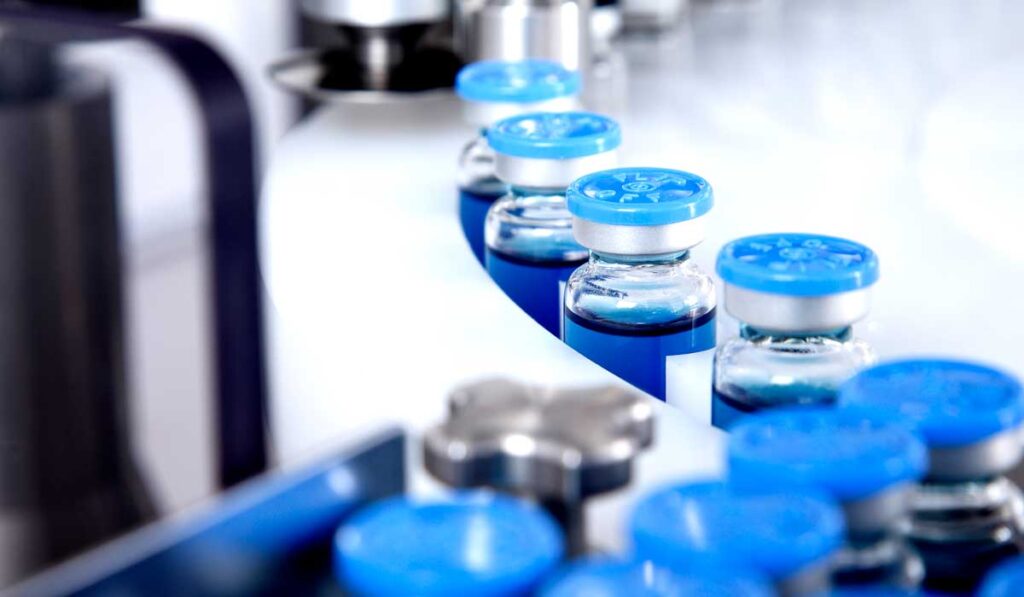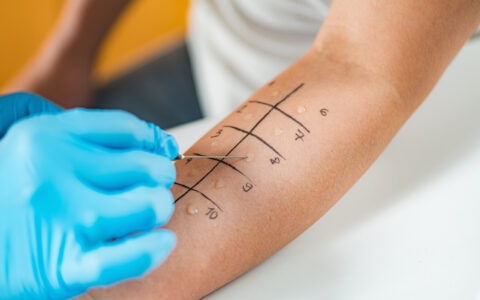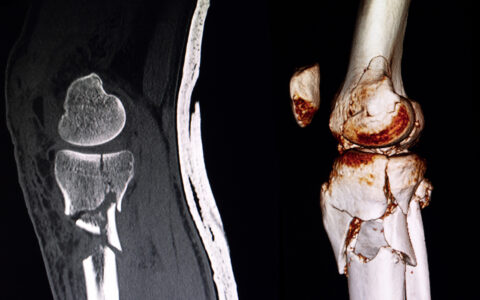Building on decades of experience investigating infectious diseases that cause epidemics, a team at Vanderbilt University Medical Center has developed a highly effective monoclonal antibody for COVID-19 that formed the basis for a new prophylactic drug at an unprecedented clip – only 25 days.
AstraZeneca produces the injectable, two-antibody cocktail, called Evusheld (formerly AZD7442), that recently earned Emergency Use Authorization from the FDA for pre-exposure COVID-19 prevention.
“I predict this general approach will change the way we think about the overall role of monoclonal antibodies in the prevention of many other infectious diseases,” said James Crowe, M.D., director of the Vanderbilt Vaccine Center and leader of the antibody discovery team.
Timing Was Off, Again and Again
Twenty-five days was unbelievably fast, Crowe said.
“We’ve been working on antibody treatments to address epidemics for 25 years, but until now the process always took too long. With the Ebola virus outbreak, the antibody discovery process took us a year. By then, the outbreak was contained.”
With the Zika virus outbreak, it took about seven months to develop a treatment, and it was the same story with the H5N1 avian influenza and the chikungunya virus outbreaks, he said.
“We developed amazing antibody drugs, but by the time we did, no one cared. The epidemics were over.”
A Need for Speed
The Vanderbilt Vaccine Center ultimately joined the Pandemic Prevention Platform Program (P3), earning a $29 million grant from the Defense Advanced Research Projects Agency (DARPA).
The goal of P3 is to speed up the process of finding effective antibody treatments for new infectious diseases to within 60 days. Rapid responses are a major priority for the Department of Defense, explained Crowe and Colonel Matt Hepburn, M.D., a program manager with DARPA’s Biologic Technologies Office, in a feature on CBS’s 60 Minutes.
“I predict this general approach will change the way we think about the overall role of monoclonal antibodies in the prevention of many other infectious diseases.”
Crowe’s team began their COVID-19 work using blood from Seattle’s Patient Zero. Obtaining this blood posed challenges. Crowe had to involve the CEO of FedEx to rush the sample out on a Sunday.
“They flew the sample in with a critical shipments team, and then, since Vanderbilt is closed on Sundays, they sent a driver from the Memphis hub in a Lincoln Town Car to deliver it to my house.”
The Vanderbilt team quickly identified two naturally occurring antibodies in the blood of people who had survived COVID-19. They were AZD8895 (tixagevimab) and AZD1061 (cilgavimab).
Impressive Performance
AstraZeneca engineered both antibodies to have a longer half-life and designated the combination Evusheld. While unaltered antibodies may persist for about three weeks, engineered versions last about three months, Crowe explained.
“You can change the sequence slightly in the bottom half of the antibodies, working with three different amino acids, and that extends the antibodies’ usefulness.”
The antibody combination has proven effective in a phase 3 clinical trial for prevention (PROVENT) and in the subset of individuals treated within three days of exposure in another phase 3 trial (STORM CHASER).
“In PROVENT, the combination decreased the risk of a patient developing symptomatic COVID-19 by 77 percent, compared with placebo initially and by 83 percent at six months after a single injection,” Crowe said.
Importantly, the PROVENT trial focused on people who were immunocompromised or had other comorbidities that rendered them particularly vulnerable to severe disease or death from COVID-19. STORM CHASER results are not yet published.
Crowe’s research group projects the prophylactic effects of Evusheld to last up to 12 months. Furthermore, preliminary data suggest the combination neutralizes SARS-CoV-2 variants, which may include Delta and Omicron, although Crowe notes activity against Omicron is reduced.
A phase 3 trial evaluating Evusheld in hospitalized COVID-19 patients is expected to share results soon regarding sustained recovery over a 90-day period. The FDA has not yet authorized any other antibody therapy for pre-exposure COVID-19 prevention, Crowe said.
Big Practical Advantages
Most current antibody treatments are given by infusion, which has been a major limitation, Crowe explained.
“Until now, a patient has been diagnosed in one place and then they have had to travel elsewhere for the infusion, and the treatment process may take hours.”
A main breakthrough with the new COVID-19 antibody treatment is that it’s a simple, one-time injection that can be administered by many different types of health care professionals.
This greatly broadens the potential for the preventative treatment, Crowe said.
“Imagine everyone in a nursing home inoculated in one day. Treating a similar population via infusion would take weeks.”
Next Challenge: Lowering Cost
Crowe believes monoclonal antibody injections like Evusheld will be the principal tool used for emerging infections in the future.
“They will be complementary and sometimes more important than vaccines,” he said.
He admits that brings up cost concerns.
“A lot of future research is going to focus on dropping the cost of antibody treatments like this one to $10 per dose,” Crowe said, adding that current price tags for biologics can run $400 to 2,000 per dose.
This aspirational goal parallels Crowe’s longstanding focus on research to benefit people in low- and middle-income countries.
“Our goal is not just to create drugs or make money, but to use the resources of foundations and governments to find practical solutions for the world’s most vulnerable people.”





